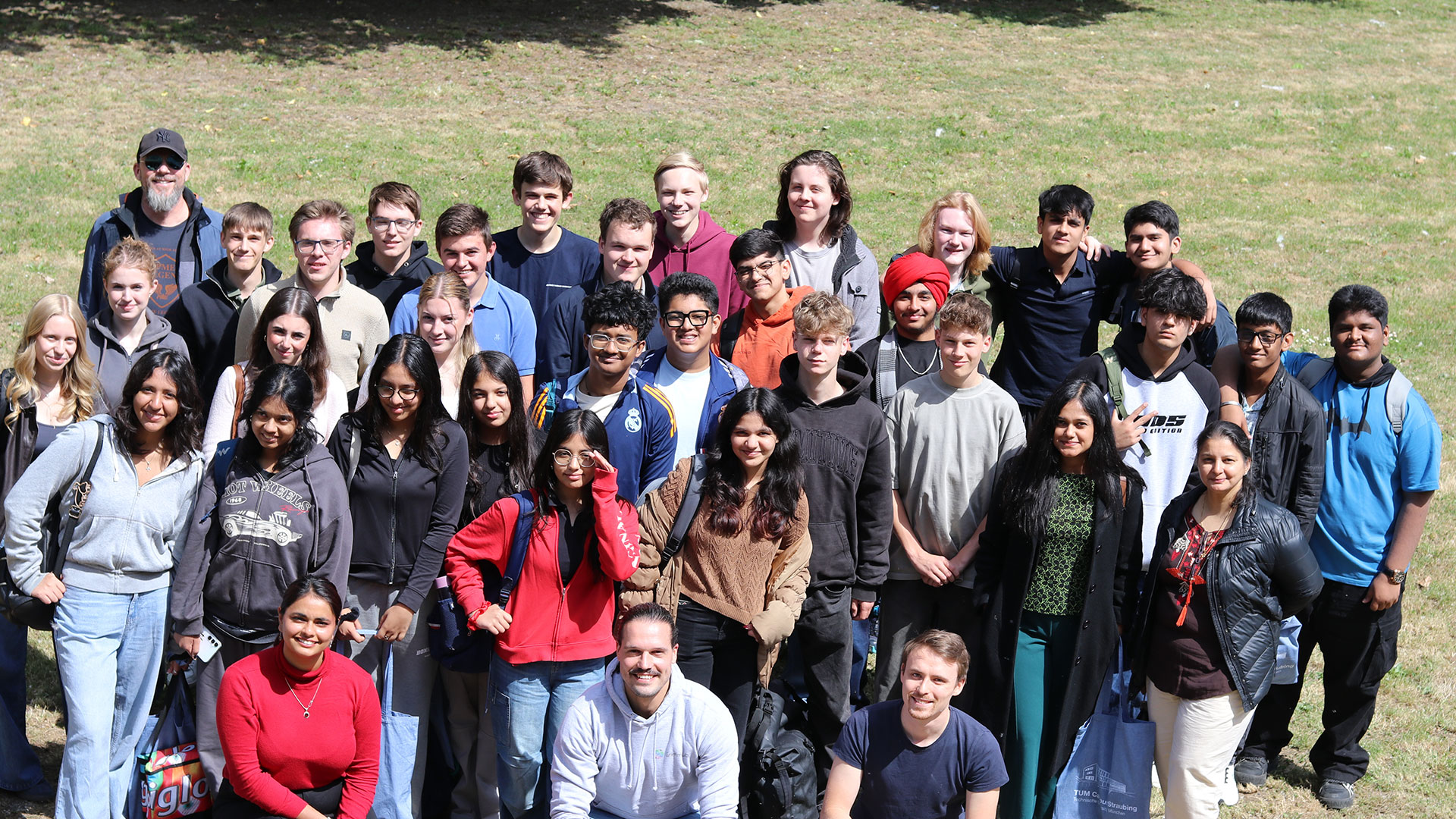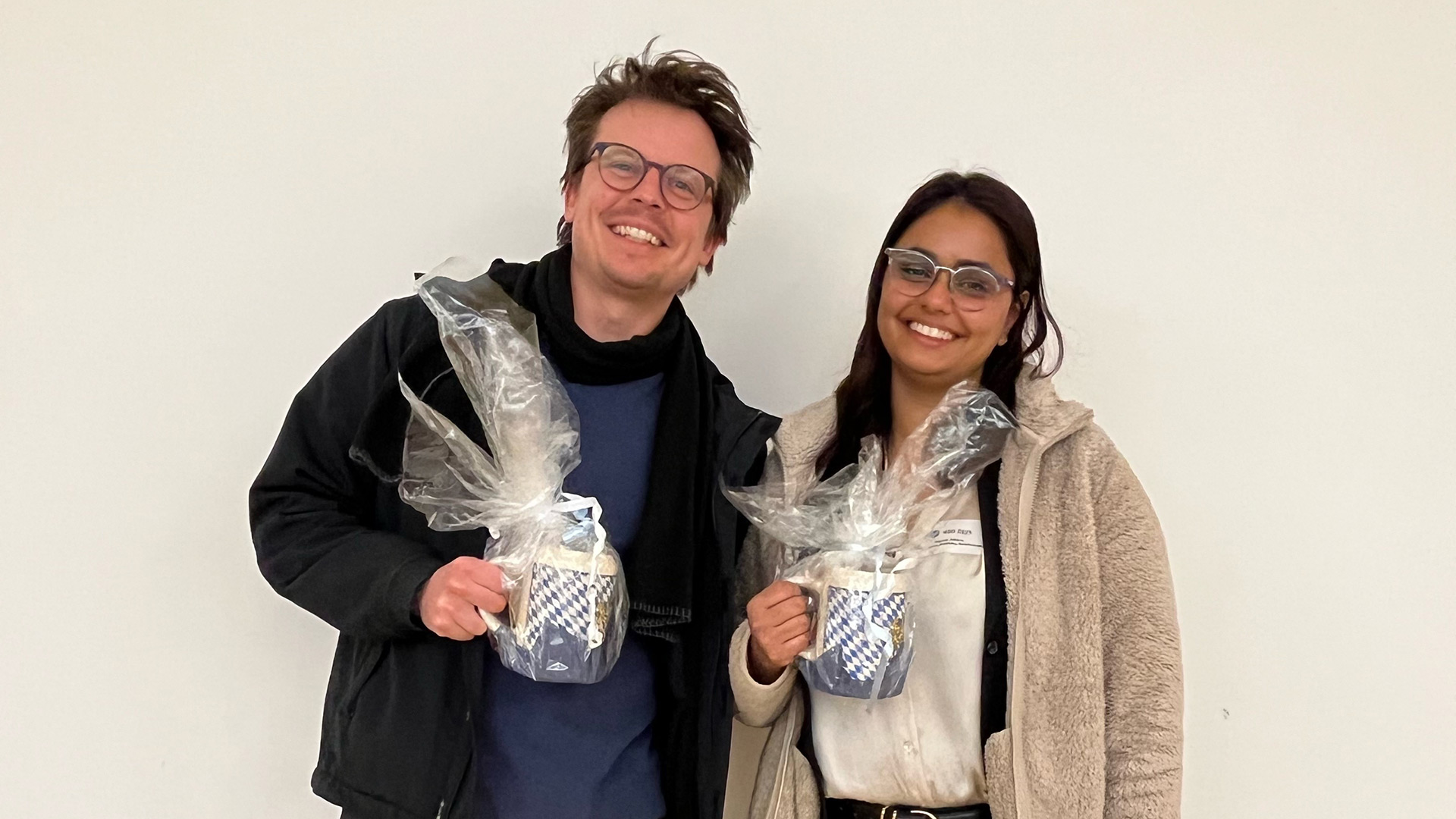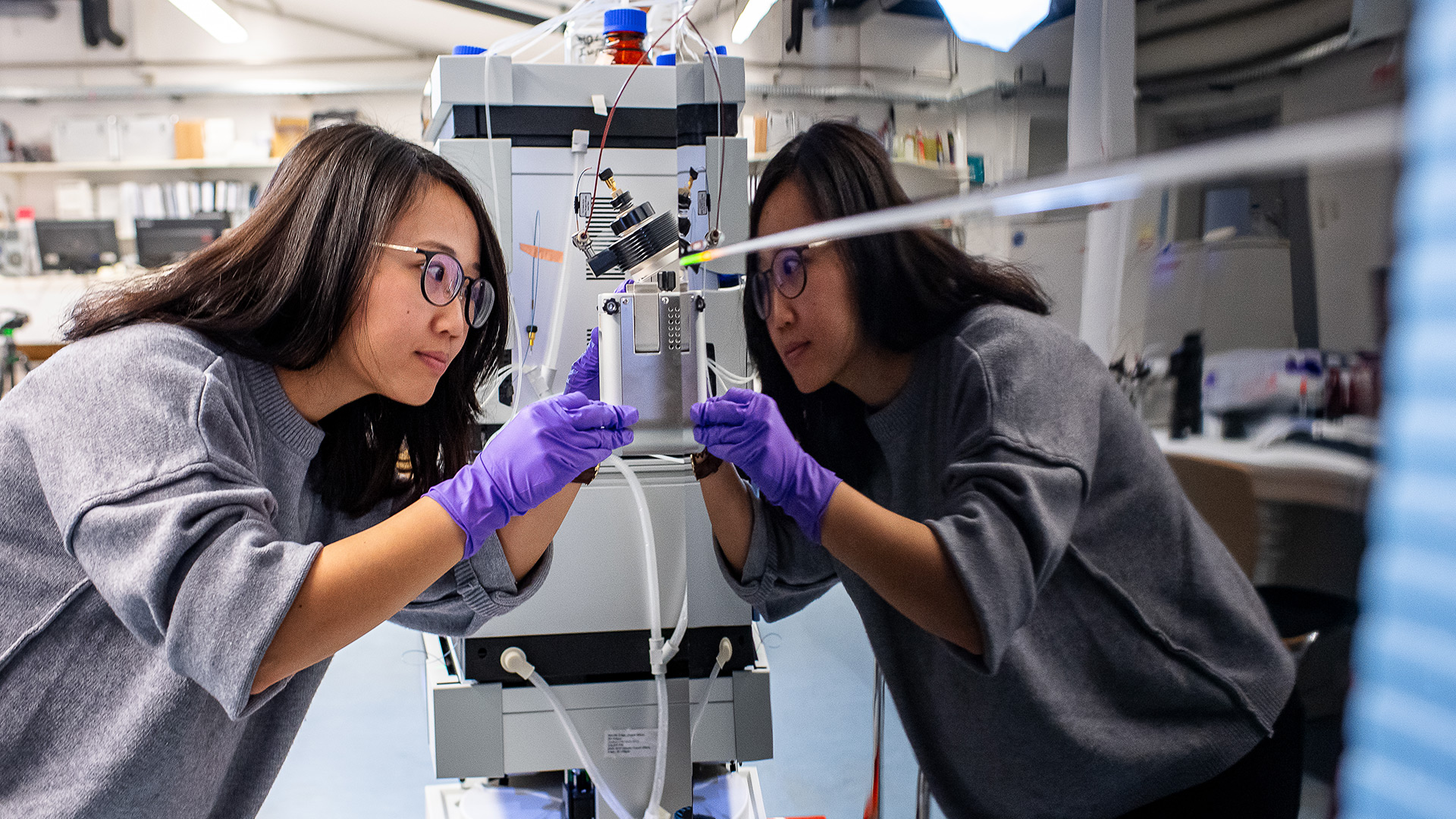Welcome to the website of the Professorship of Bioinformatics at TUM Campus Straubing for Biotechnology and Sustainability
The research lab conducts research in the field of bioinformatics and machine learning, focusing on the development of statistical and machine learning methods to better understand complex biological systems, their functioning and biochemical properties. For this purpose, the lab works on methods to detect genotype-phenotype relationships and to extract phenotypic features from imaging data. These methods have applications in genetics, precision medicine, and precision agriculture. An emerging area of research is the development of artificial intelligence to solve problems in life sciences and chemistry without including specific prior knowledge.
News
Students from Straubing and India visit TUM Campus Straubing: Experience artificial intelligence up close
How can artificial intelligence (AI) help to make agriculture more sustainable and gain new insights in the fields of chemistry and biotechnology? Students from Turmair-Gymnasium Straubing, together with guest students from India, got to the bottom…
Poster and Talk Awards honoured: Two prizes for GrimmLab doctoral students
From the ‘Weihenstephan Bioinformatics Symposium’ (WBS2025) in Freising, two scientists from the Professorship of Bioinformatics at the TUM Campus Straubing recently returned with two prizes. Jonathan Pirnay received the ‘Best Talk’ prize, Ashima…
Artificial Intelligence in the Life Sciences: Why AI models often fail in practice
Artificial intelligence (AI) based on machine learning offers opportunities for the life sciences. However, problems often arise in practice. One cause is data leakage, the illicit spillover of information from the training to the test data.…


